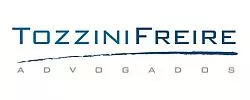An agreement celebrated between the Brazilian Health Surveillance Agency (Anvisa) and the Brazilian Patent and Trademark Office (INPI) formalized on April 12, 2017, has finally ended the discussion regarding the competent authority for patent analysis related to pharmaceutical products and processes. This new agreement will enter into force 60 days after its publication.
The understanding between the agency and the office will allow the resumption of pharmaceutical patent examinations in Brazil. It is estimated that at least 21,000 drug-related patent applications are currently pilled up in the INPI, due to the above-mentioned conflict.
The agreement establishes the attributions of each agency, as
well as the order of processing patent applications.
From now on, after INPI's formal examination, Anvisa shall
analyze public health criteria and, if applicable, proceed with the
prior consent of the patent application. Whereas INPI shall be
responsible for examining the requirements of patentability
established by law, which are applicable to any patent.
Whenever the agency decides that a patent application does not comply with the public health criteria, INPI will publish Anvisa's analysis results and shelve the application.
For issues in which there is still a conflict of jurisdiction between INPI and Anvisa, rules will be defined by an intersectoral group (Interinstitutional Articulation Group), with representatives of both bodies.
The content of this article is intended to provide a general guide to the subject matter. Specialist advice should be sought about your specific circumstances.
We operate a free-to-view policy, asking only that you register in order to read all of our content. Please login or register to view the rest of this article.




